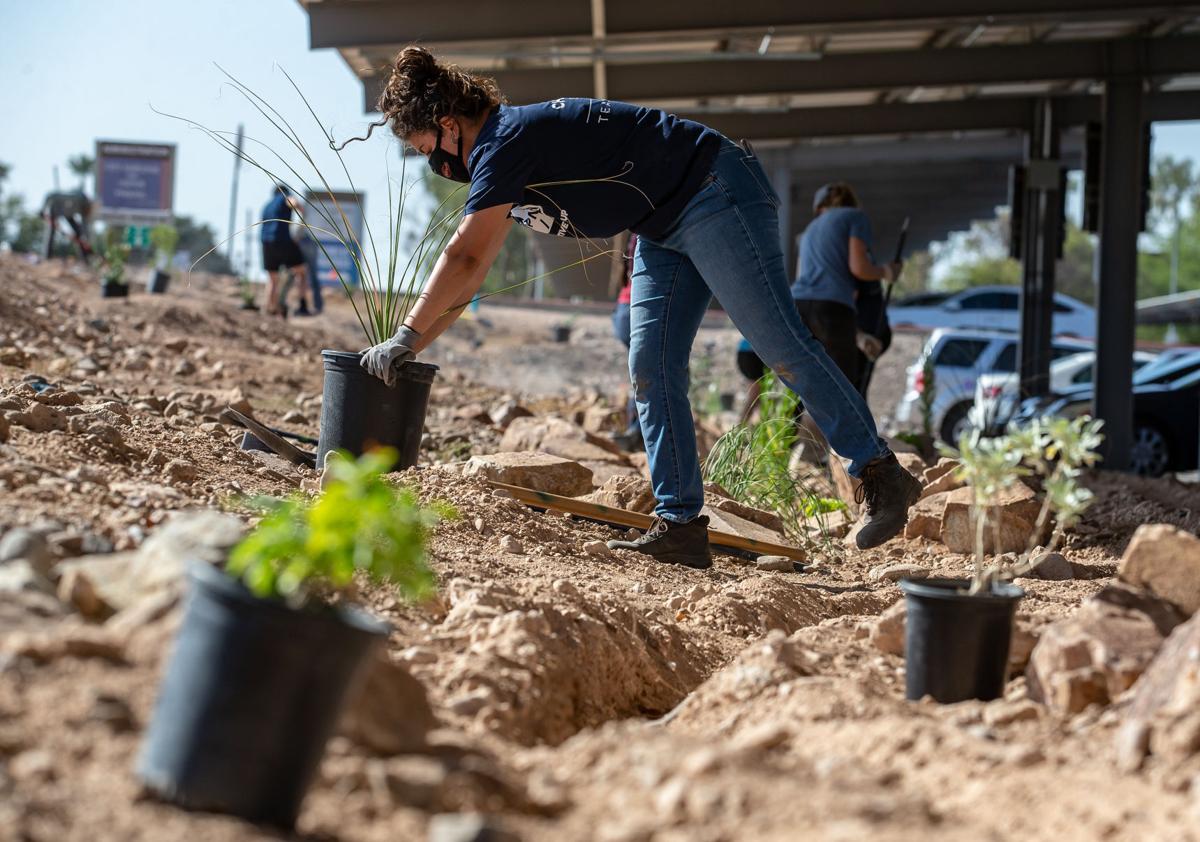More shade is headed to Tucson under a $1 billion federal outpouring of grants to nearly 400 projects in the US to plant and maintain trees.
Tucson is set to get $5 million and the Community Food Bank of Southern Arizona will receive $400,000, according to federal officials.
The $1.13 billion in funding for 385 projects across the United States was announced Thursday by U.S. Department of Agriculture Secretary Tom Vilsack as part of President Biden’s “Investing In America” agenda.
The federal program is intended to reduce extreme heat, benefit health and improve access to nature, according to the Associated Press.
Tucson was awarded a $5 million urban forestry grant “to invest in Tucson neighborhoods on the frontlines of climate change,” Mayor Regina Romero’s office said in a news release.
The city project is intended to help create more green spaces in urban communities, invest in workforce development and support community engagement “to ensure the benefits of trees are equitably distributed,” the release said.
“This grant is another great example of how we are aggressively going after federal dollars to implement our climate action plan,” Romero is quoted as saying the release. “It will ensure that the benefits of trees are reaching our most vulnerable residents: our seniors, children and low-income communities. They are already feeling the effects of extreme heat.”
U.S. Rep. Raúl Grijalva cited this year’s record heat in Arizona while touting the program.
“Arizonans experienced our hottest summer on record as a result of climate change, and now, more than ever, we need ways to mitigate and reduce its impact in our urban centers,” Grijalva said. “The City of Tucson’s community-led and climate justice-focused urban forestry plan will increase the resiliency of vulnerable and environmental communities, create vital green space and spur sustainable economic opportunity.”
The Community Food Bank of Southern Arizona received $400,000 for its “SOMBRA in the Desert,” project. It aims to decrease temperatures in heat-vulnerable communities and promote food security.
“We’re grateful for the funding to push forward with the Sonoran Mesquite Barrio Restoration Allice (SOMBRA) and create community tree forests,” said chief executive officer Malea Chavez, in a written statement.
“Working together with community partners we know how important these mesquite trees will be not only to help lower temperatures in heat-vulnerable communities but also to promote food security with a native food source,” she said.
The federal money comes from the Inflation Reduction Act of August of 2022, according to a news release from the United States Department of Agriculture. Over 842 applications totaling $6.4 billion were received by the U.S. Forest Service, the USDA said in a news release.
“These investments arrive as cities across the country experience record-breaking heatwaves that have grave impacts on public health, energy consumption, and overall well-being,” said Secretary Vilsack in the release.
“Thanks to President Biden’s Investing in America agenda, we are supporting communities in becoming more resilient to climate change and combatting extreme heat with the cooling effects of increased urban tree canopy, while also supporting employment opportunities and professional training that will strengthen local economies,” he said.
Brenda Mallory, chair of the White House Council on Environmental Quality, said that many communities lack access to nature at the Thursday event, according to the AP.
“Everyone should have access to nature,” she said. “Urban forests can really play a key role in ensuring both that access but also increasing the climate resilience of communities, helping reduce extreme heat and making communities more livable.”
The grant money awarded was available to community-based organizations across the country. According to the USDA, entities in all 50 states, several U.S. territories and Tribal Nations across the country will receive funding.
Tucson Clean and Beautiful is going out every Saturday through March with dozens of volunteers to plant trees in neighborhoods around Tucson. It's part of Tucson Mayor Regina Romero's plan to plant 1 million trees in Tucson by 2030.





